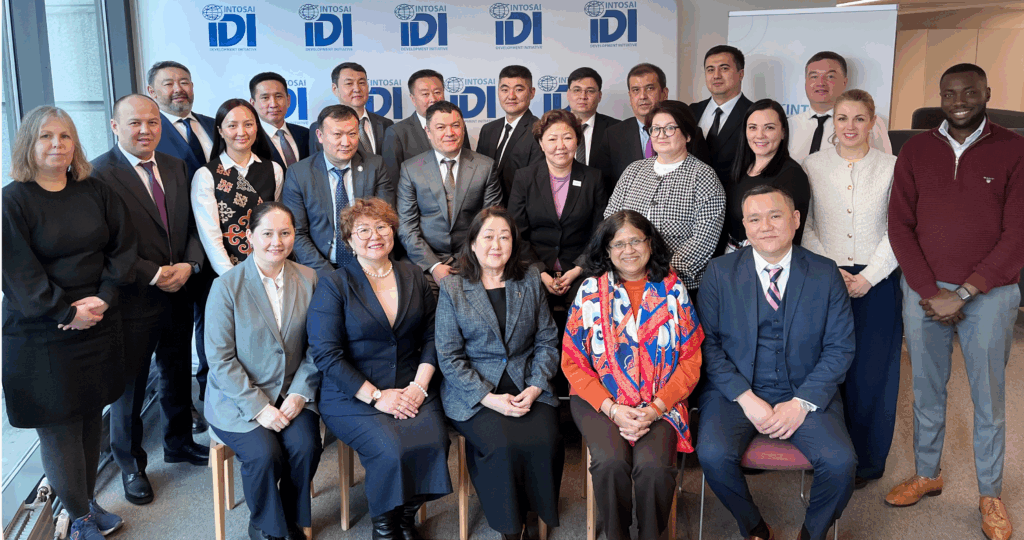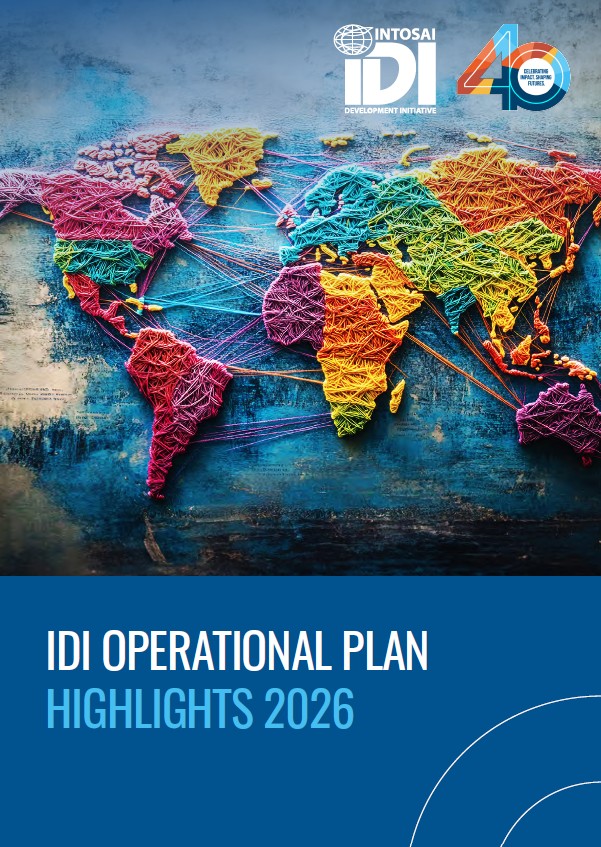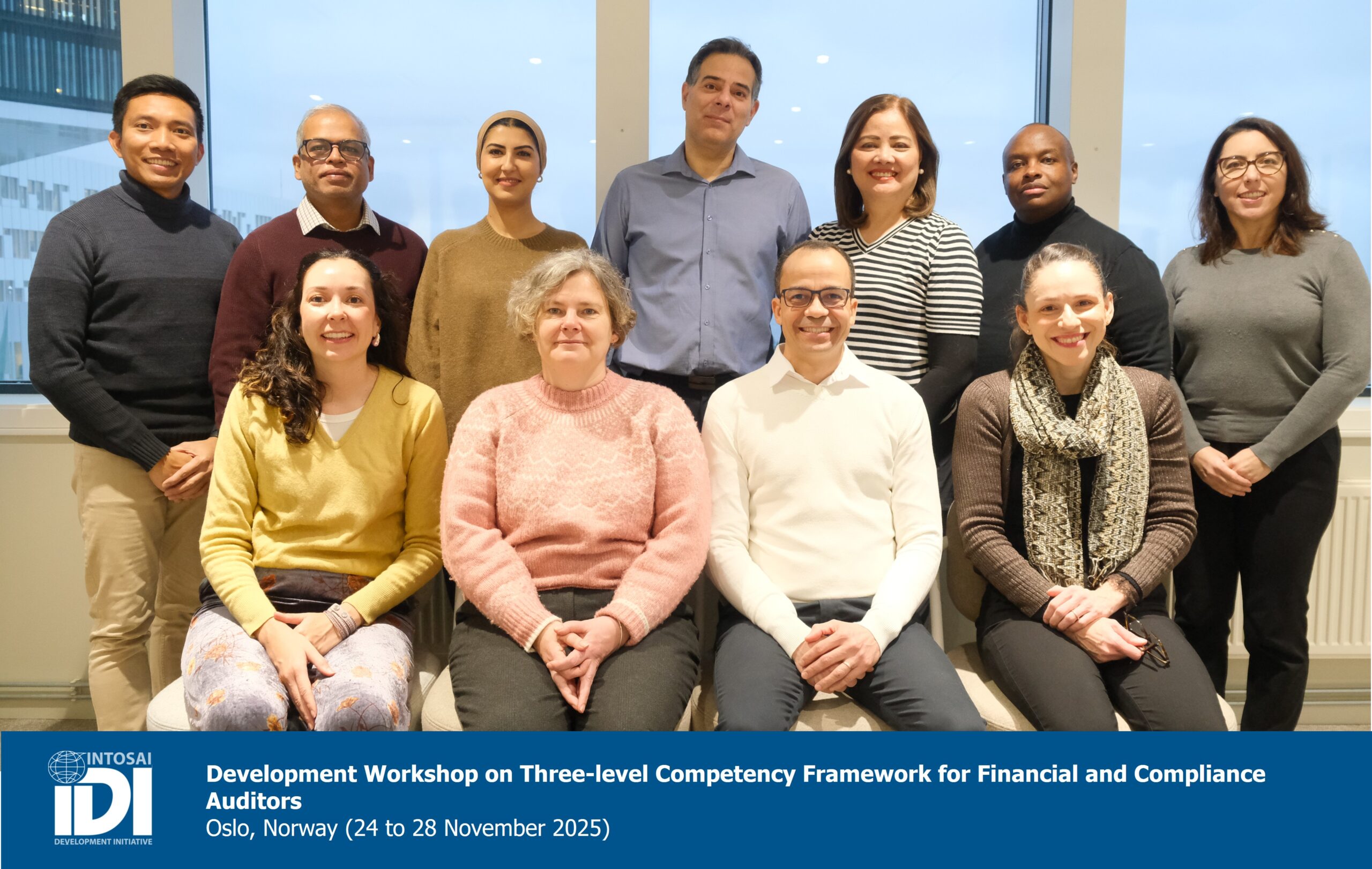From 3–7 March 2025, a delegation from the Supreme Audit Institutions (SAIs) of Kazakhstan, Kyrgyz Republic, and Uzbekistan, along with representatives from the World Bank, visited Oslo for an intensive and enriching workshop and knowledge exchange. Hosted by the INTOSAI Development Initiative (IDI), the visit facilitated meaningful discussions on audit quality management, strategic planning, and parliamentary engagement, with key contributions from the Norwegian National Audit Office (NAO) and the Norwegian Parliament’s Public Accounts Committee.
A Mission for Strengthened Accountability
The visit was part of the World Bank-funded Central Asia Supreme Audit Institutions (CASAI) project, which aims to enhance the performance and accountability of public institutions by strengthening SAIs’ capacities. As part of this initiative, the Oslo visit provided a crucial opportunity to deepen cooperation, exchange best practices, and identify pathways for future collaboration between IDI, the World Bank, and SAIs in Central Asia.
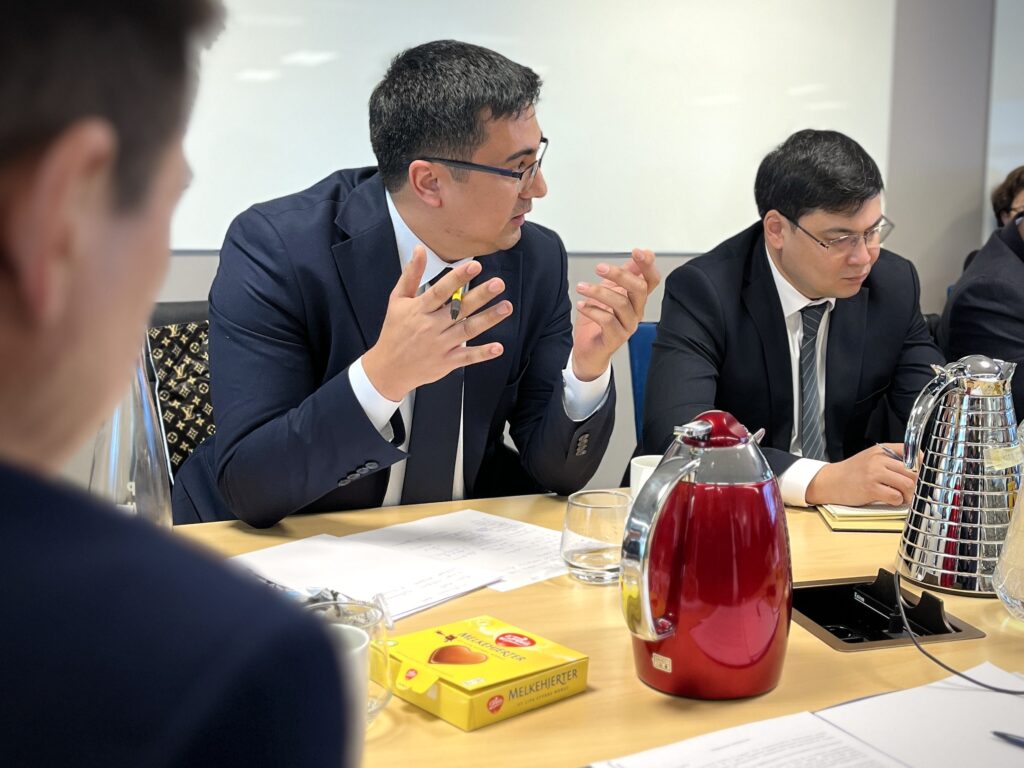
Insights from IDI: Global Initiatives and Audit Quality Management
The delegation’s engagement began at IDI’s Oslo offices, where they gained an in-depth understanding of IDI’s mandate, met with IDI staff and became familiar with its various global initiatives supporting SAIs worldwide. Discussions highlighted how Central Asian SAIs could leverage IDI’s global support mechanisms, such as PESA (Professional Education for SAI Auditors) to enhance their audit capabilities, and SIRAM (SAI Rapid Advocacy Mechanism) to respond to threats to their independence.
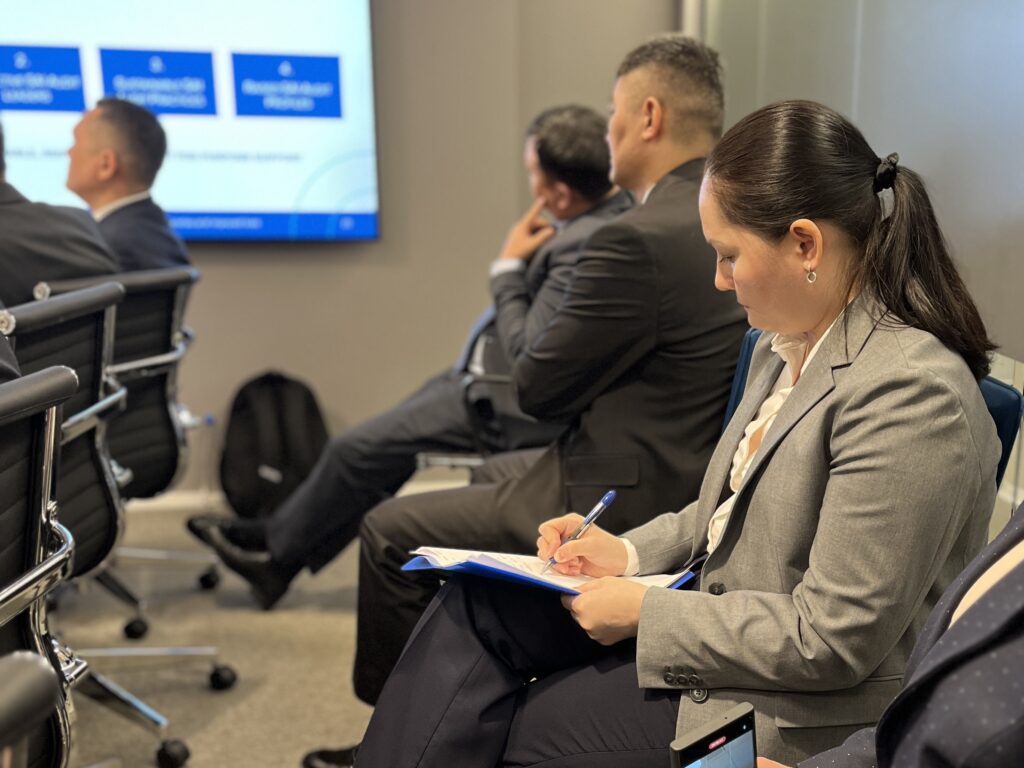
A key highlight was the Quality Management Seminar, where IDI experts provided a high-level overview of audit quality management, aligned with the new ISSAI-140 standard. The session emphasised the importance of embedding quality into the audit process to ensure credibility, efficiency, and value-added oversight.
Engaging with the Norwegian Parliament: Strengthening Legislative Oversight
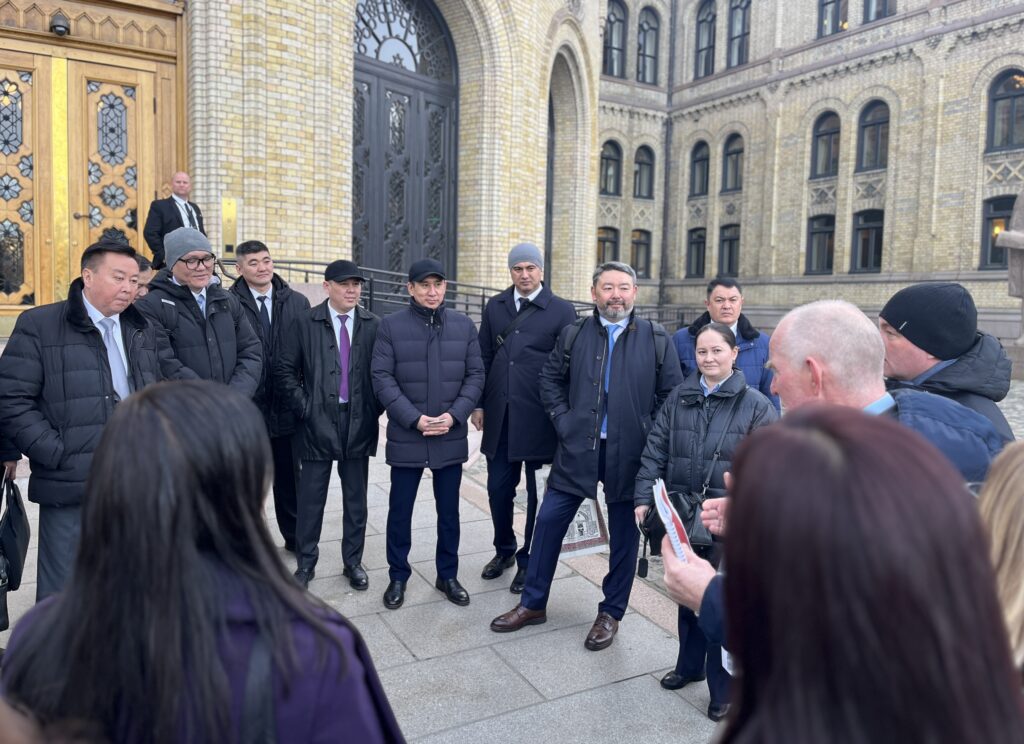
On the second day, the delegation visited the Norwegian Parliament (Stortinget) to explore how parliamentary oversight mechanisms function in Norway. They met with parliamentarians and leading members of the Committee for Scrutiny and Constitutional Affairs, who shared insights on how the Norwegian Parliament ensures accountability through its collaboration with the NAO and its review of audit reports.
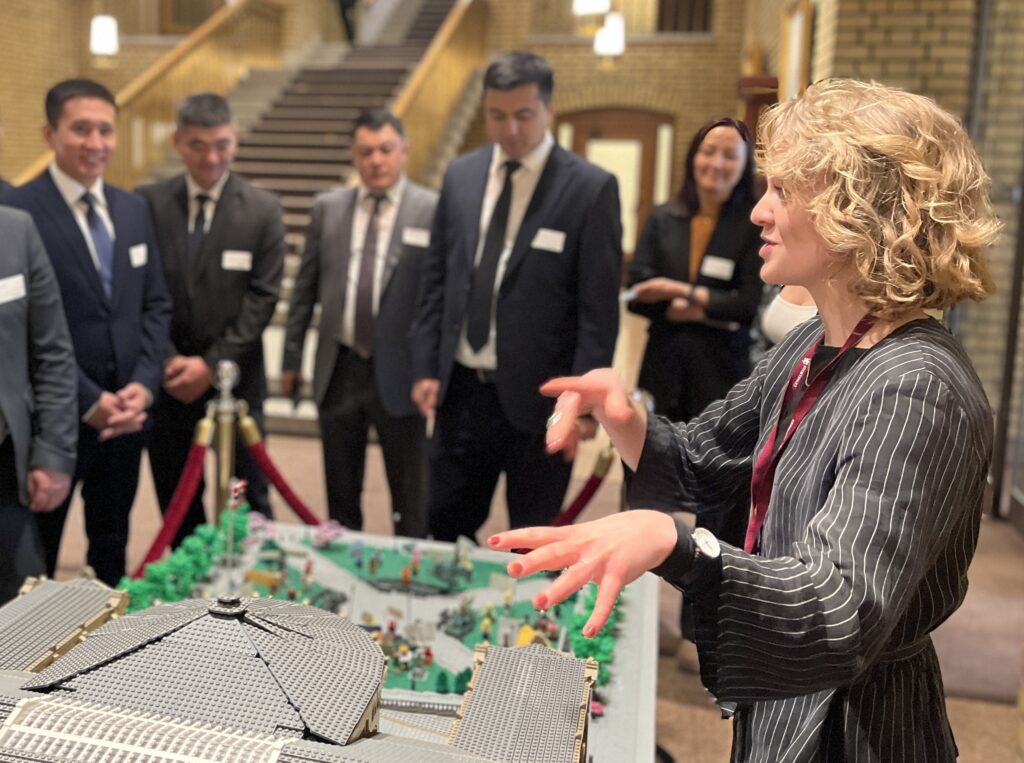
This session sparked thought-provoking discussions, with delegates reflecting on how their respective SAIs could strengthen their engagement with their national parliaments to enhance accountability.
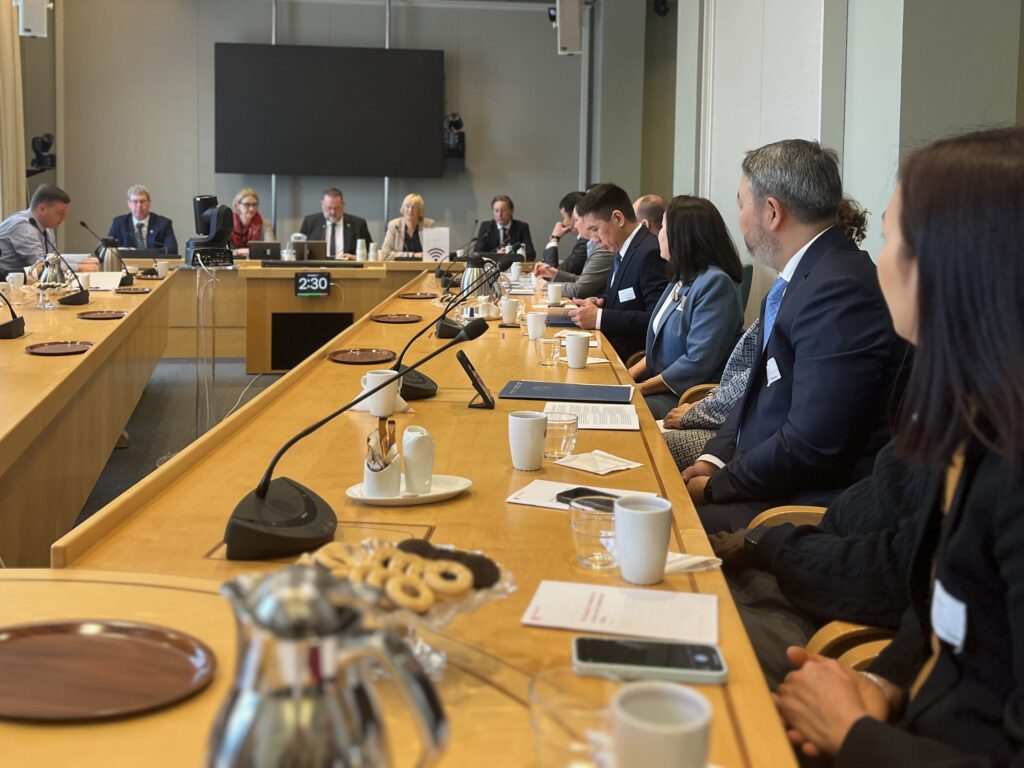
Learning from NAO Norway: Strategic Management and Stakeholder Engagement
Later, at the NAO office, delegates were welcomed by senior officials who provided an overview of NAO’s legal framework, responsibilities, and engagement with key stakeholders, including the government and the public. They discussed NAO’s strategic planning approach, performance measurement systems, and the role of the Auditor General in ensuring transparency and accountability.
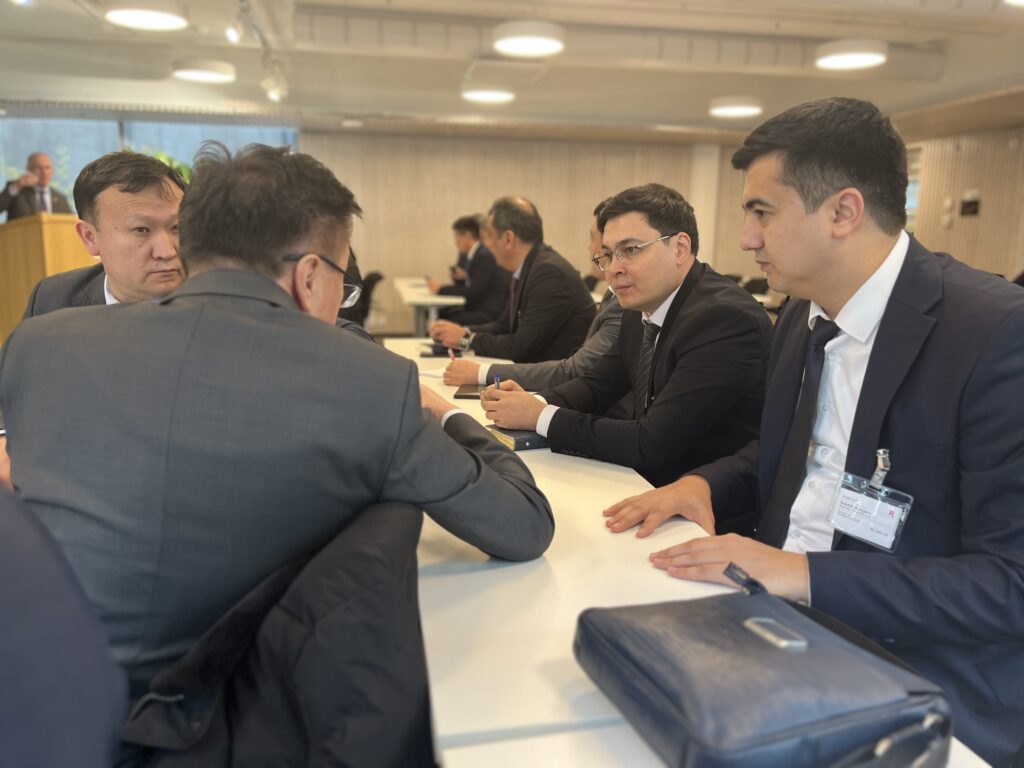
This visit was particularly impactful for the Central Asian SAIs, who were keen to explore ways to refine their strategic management processes and stakeholder engagement frameworks. The session underscored the importance of maintaining independence while actively engaging with government institutions and civil society to drive meaningful reforms.
Charting a Path Forward: Strategic Planning for SAIs
The final day featured a Strategic Management Seminar led by IDI experts. The session covered essential aspects of strategic and operational planning, including identifying strategic issues, developing results frameworks, and implementing performance monitoring systems.
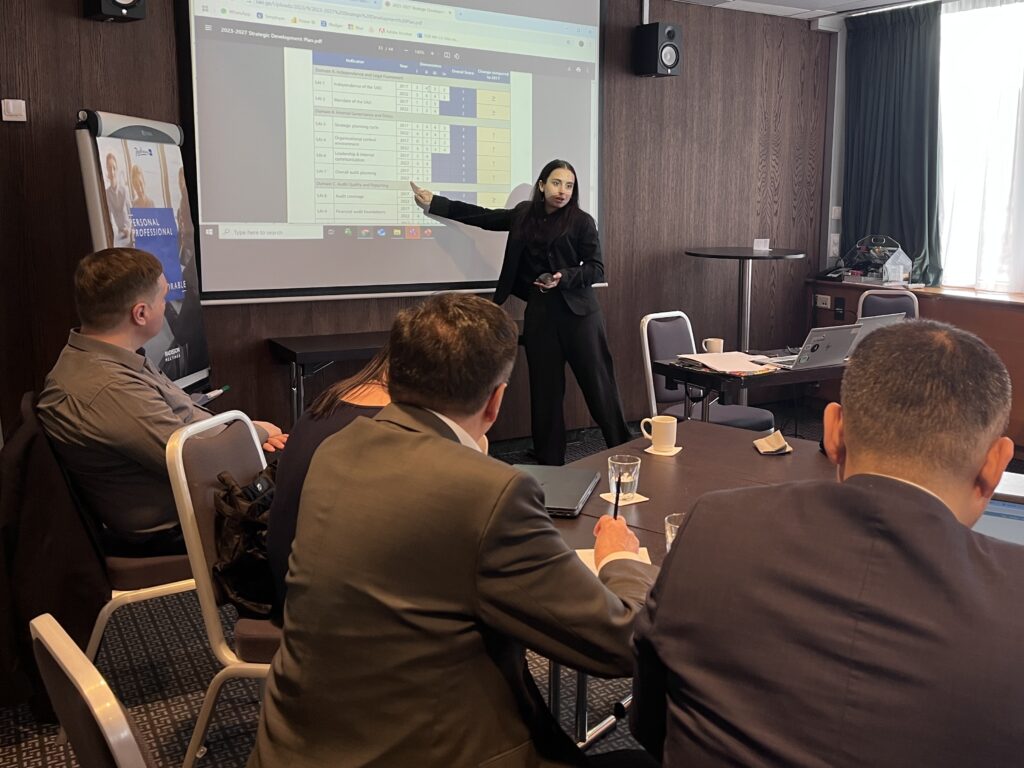
Discussions highlighted the role of strategic planning in adapting to emerging challenges and ensuring that SAIs remain agile, effective, and relevant in their oversight roles.
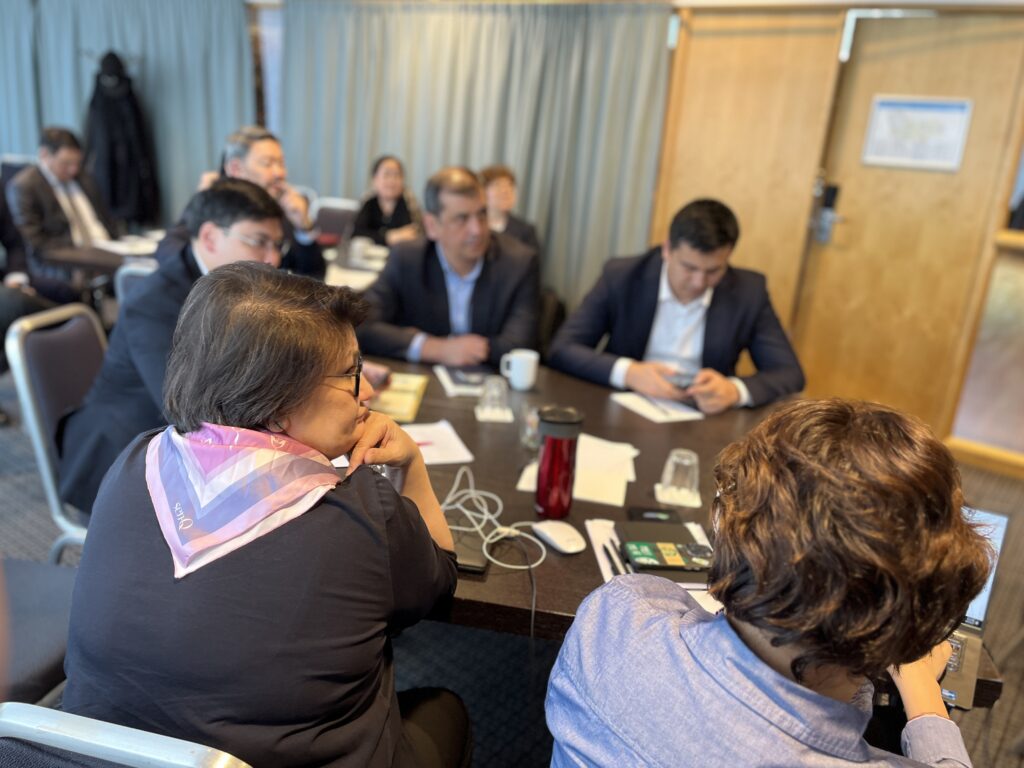
A Commitment to Continued Collaboration
As the delegation prepared to depart, it was evident that the visit had fostered a stronger foundation for collaboration between IDI, the World Bank, and the Central Asian SAIs. The participants left with a deeper understanding of best practices in audit quality management, parliamentary engagement, and strategic planning, as well as a renewed commitment to strengthening their institutions.
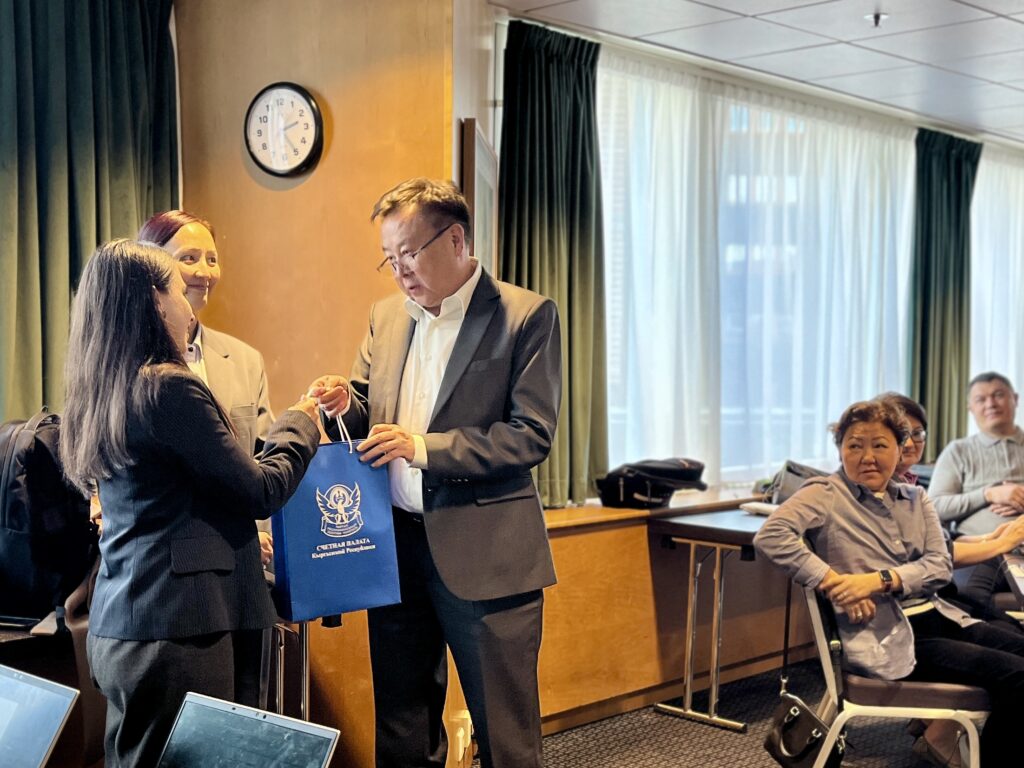
This visit marks an important milestone in strengthening accountability in Central Asia. By fostering partnerships, promoting peer learning, and sharing best practices, IDI and its partners continue to play a vital role in advancing the capabilities of SAIs worldwide. The discussions and connections formed in Oslo will serve as a catalyst for ongoing collaboration with the World Bank and other global accountability actors, ensuring that SAIs in Kazakhstan, Kyrgyz Republic, and Uzbekistan are well-equipped to enhance public sector accountability and transparency in their respective countries.
